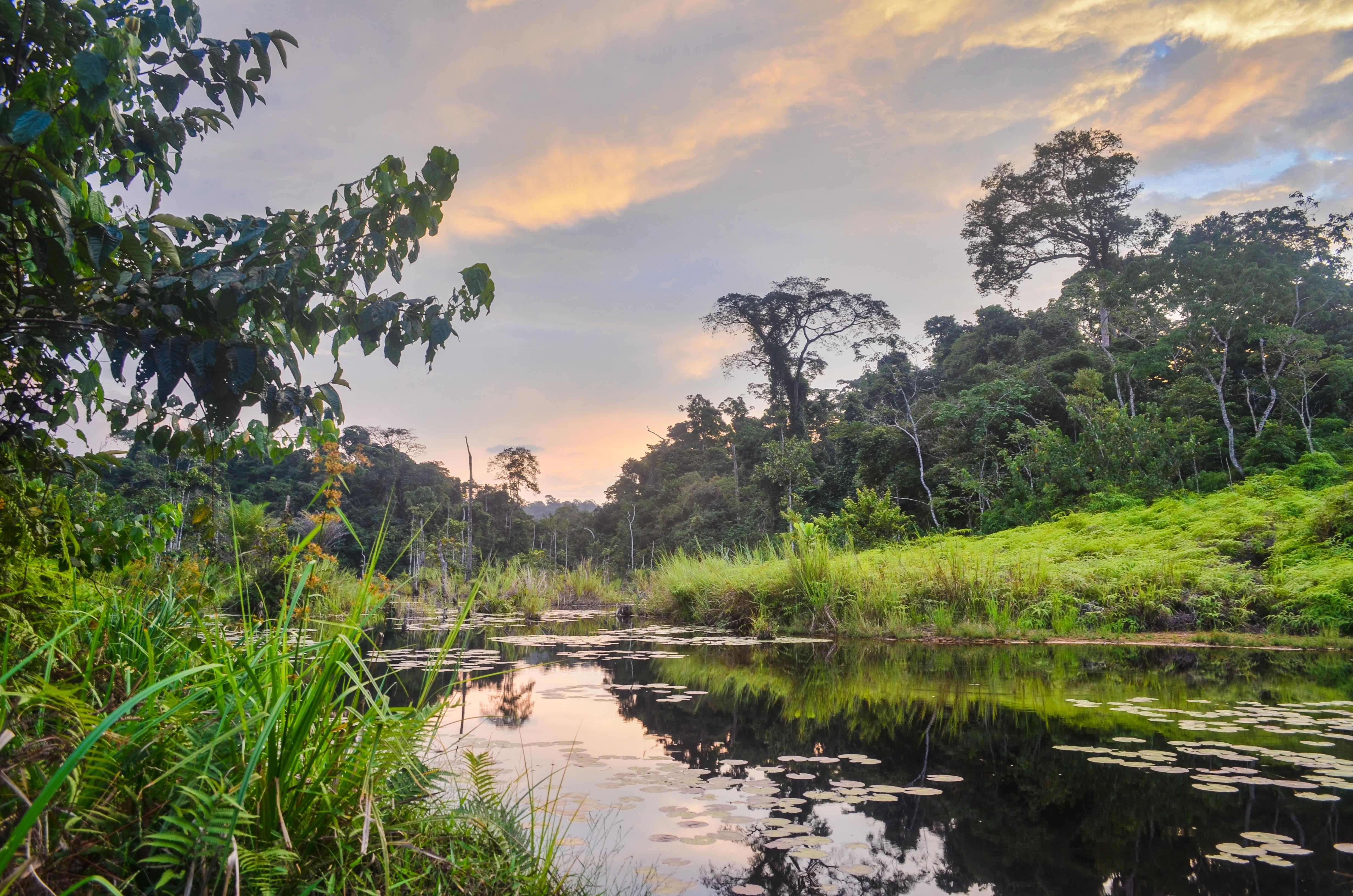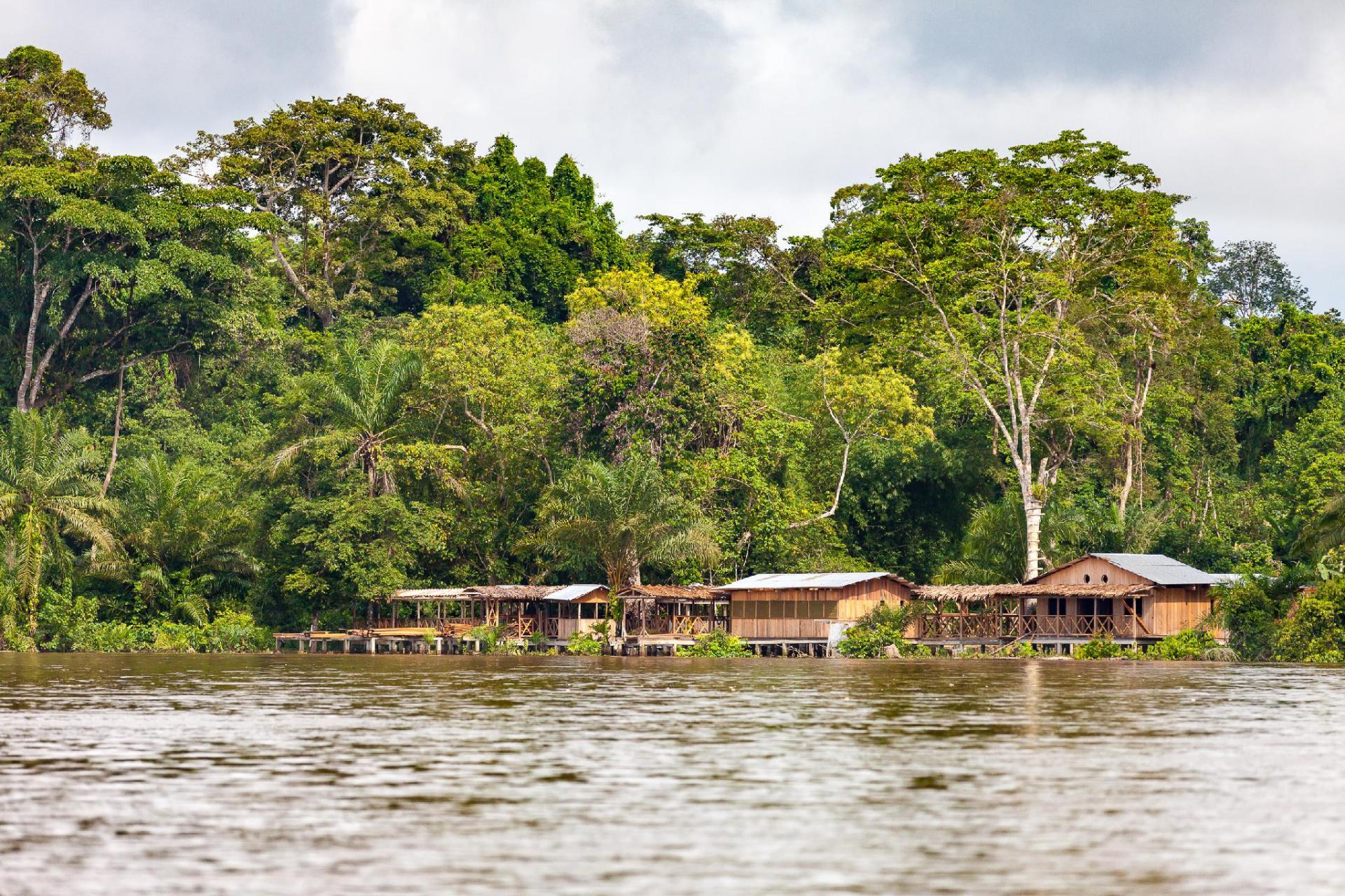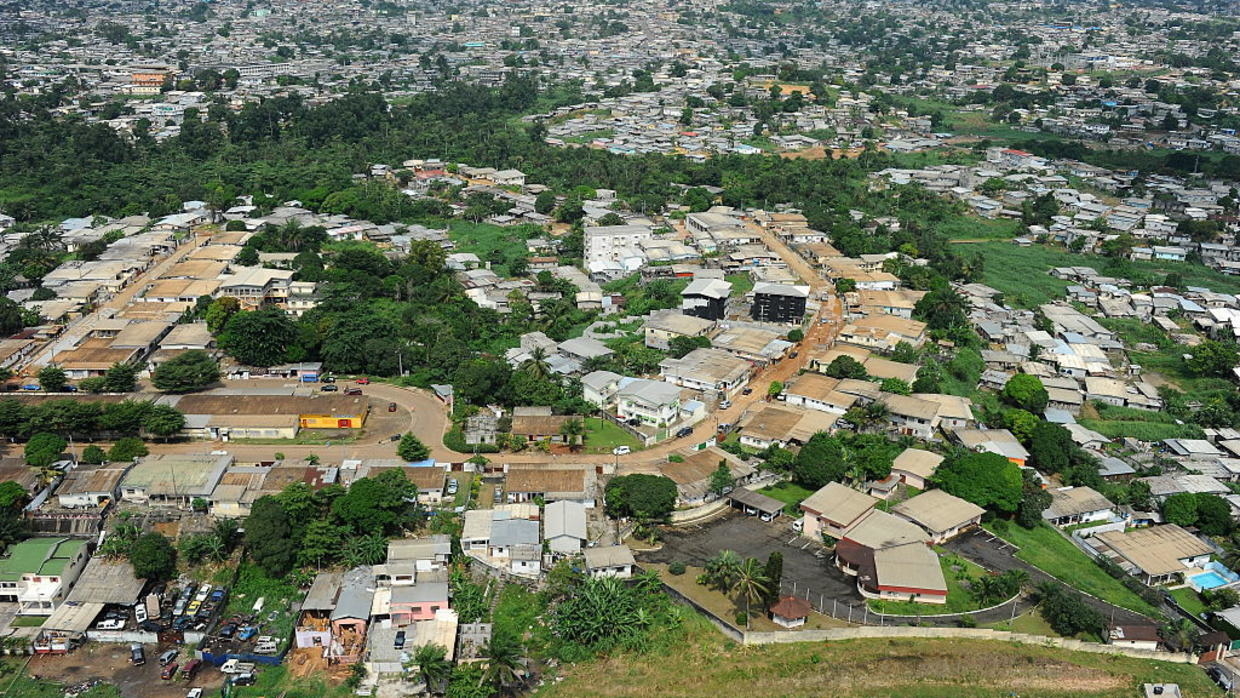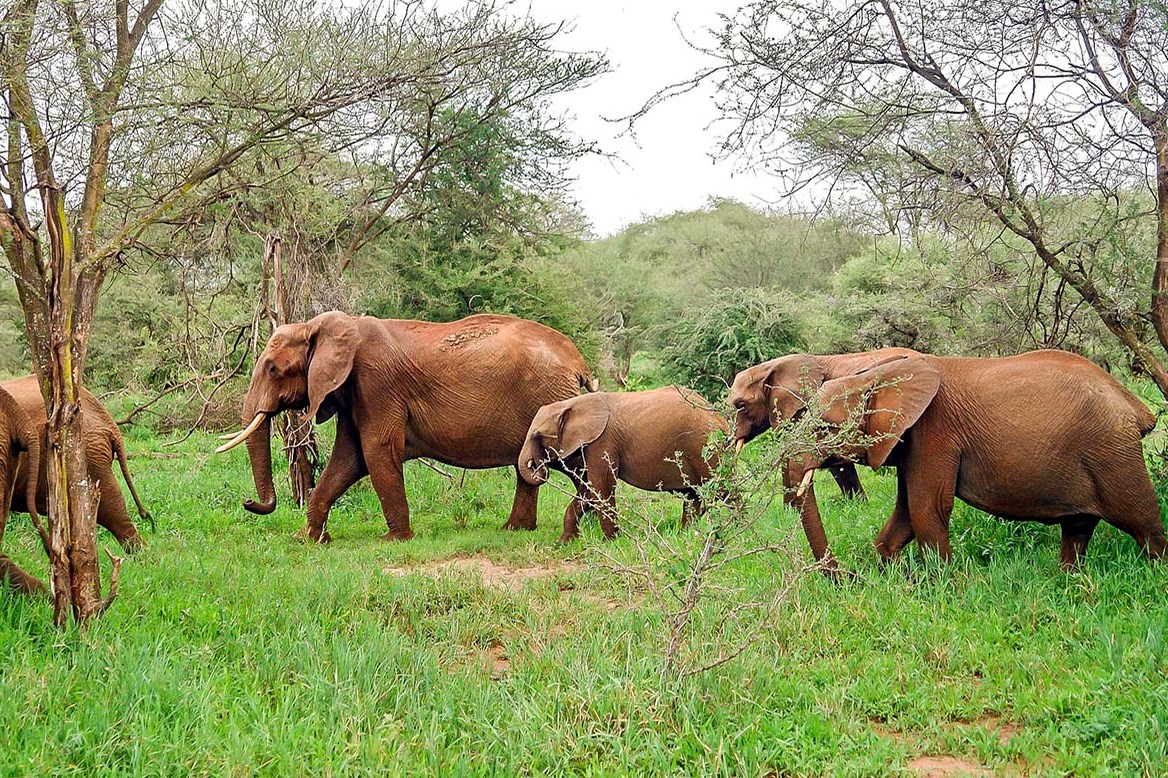Welcome to Gabon

Only in the middle of the past century, when Pygmies were very few, Gabon gained independence from foreigners…
If you close your eyes and pronounce the word Libreville, your imagination draws a wonderland town with low, white houses, shiny lawns, well-groomed pebbly paths and dense green oases. However, the real Libreville is not like that. The word libreville means a free city and it was founded by former slaves on the shore of the Gulf of Guinea. Yet, it has some features of a tropical fairy tale: superb white-sand beaches, cosy bays, ocean and a lot of sunshine. Photo profor.info
Photo profor.info
Libreville, the capital of the African equatorial Gabon, is considered one of the quietest cities on the continent. There is many police officers on the streets, and all residents over 14 years old are required to have documents with them and show the documents on demand. Some of the travellers compare it to the American Miami Beach, others see it similar to the Brazilian Rio de Janeiro. The life in Libreville is quite tranquil, there is a relatively high level of income per capita; its inhabitants are not very interested in foreign policy. Famous European and American film studios often shoot movies about wildlife here, there are world known brands in shopping centres, Libreville residents like to party and hanging out in pubs in the evenings, and children always say hello when meeting strangers.
Mostly the Christians inhabit the city, there are also Muslims, as well as practitioners of the ancient spiritual discipline Bwiti. Its followers hold the opinion that all objects in the world are endowed with soul, and from time to time, they consume the sacred plant of iboga. It belongs to psychedelics, however, experts claim, it is not addictive, and even relieves drug dependence. Recently, the Government of Gabon declared it a national treasure and prohibited exporting it outside the state. Photo cdn.surfer.com
Photo cdn.surfer.com
Almost a third of the population lives in the capital of Gabon. Its centre is full of skyscrapers and sophisticated buildings reminiscent of aircraft. Where possible, they are equipped with ramps, and road signs in the centre are duplicated on asphalt. In Libreville, there is a Chinese quarter, founded by builders who work on construction sites. China is one of the main economic partners of Gabon, therefore in its capital there are many natives of the Middle Kingdom. All free areas in the city from time to time turn into football fields. This is the favourite game of the Libreville residents. If someone does not know how to score a goal, then with great pleasure they are watching how their neighbours do it. Special attitude of the Gabonese to football is evidenced by the fact that Libreville built the famous stadium the Stade d'Angondjé. During the 2012 Africa Cup of Nations, it was the main stadium of the entire championship.. Photo agoda.com
Photo agoda.com
To tell you the truth, Libreville often has garbage dumps in its streets, and road shoulders are full of abandoned quite expensive samples of the Japanese, German and French car industry of the middle and late last century. Many of them cannot be repaired since there are no right spare parts. Photo tellerreport.com
Photo tellerreport.com
One of the most important facilities in Libreville is the port. Through it, the country exports timber, oil, rubber, ore, uranium concentrate, peanuts, cocoa, sugar cane, palm oil. The proximity of the ocean supplies the locals with fresh fish. All travellers tell about ethereal beauty of Libreville beaches. Here the turtles nest and not average ones, but the large species which are about two and a half meters long. The Gabonese are fond of soup of tortoise meat, and therefore law protects rare species. It should be mentioned that the tastes of Libreville residents are quite specific. In Gabon, they gladly eat meat of camel, antelope, snake, porcupine, gorilla, crocodile and chimpanzee; they enhance their soups with bananas; they stuff crabs with rice and sweet potatoes. The locals love fish meat mix. Generously sprinkle their dishes with onions, hot peppers, ginger, and cassava. The Gabonese are not against having a hard drink. More often, it is wine from sugar cane and palm juice. Those who do not like spirits prefer green tea with mint and cocoa. It is also specific that the Gabonese do not like boiled food. All products are fried, dried, stewed or baked. Photo img.tourister.ru
Photo img.tourister.ru
Spiritual food is usually catered in the Church of St Michael. It has quite unusual look. It is wooden, and thirty-one columns made of mahogany support its roof. As the local legend has it, a blind artist carved the scenes from the Bible. This church is also famous because during the service, the choir uses national African instruments, thus enhancing worship with local hot charm.
To understand what exactly Gabon is, it is better to go beyond its capital. Despite the modest territory, there are still many places in the country untouched by civilization. Here and there tourist routs are blocked by the Pygmies, a little more than a meter tall and leading a primitive way of life. In Gabon, there are many parks, protected areas and national wildlife reserves. There are thirteen of them. Most of the country consists of rainforests. The Crystal Mountains rise in the western part of Gabon. They are covered by a dense equatorial rainforest, and the rivers rushing through them often turn into waterfalls. Elephants, monkeys, buffaloes, leopards, hyenas and other animals come to them for fresh water. Wild orchids and begonias grow on the Crystal Mountains. The highest peaks of Gabon rise closer to the border with the Republic of Congo. Photo discover-afrika.com
Photo discover-afrika.com
Here flows the Ogooué River, the largest river of country through which experienced travellers often sail down to the ocean. Nature enthusiasts often visit the Gorilla Island. There one can observe the primates in their natural environment. This is the highest concentration of gorillas in the world; their neighbours are more than 400 species of birds, elephants, antelopes and buffaloes. There is also a rehabilitation centre for animals. Researchers love Gabon. There are frequent scientific expeditions in the country. Many of them visit the world's only natural nuclear reactor. Scientists have proven that a spontaneous nuclear chain reaction in the territory of modern Gabon appeared more than two billion years ago. Gabon preserved rock paintings of representatives of ancient civilizations, who inhabited Gabon long before our days. Scientists study enigmatic equatorial vegetation. They are looking for medicines for malaria in this country and the answer to the question where did humanity come from. Perhaps, some of them suggest, it originated in ancient forests in the territory of modern Gabon.
Cover photo discover-afrika.com





















